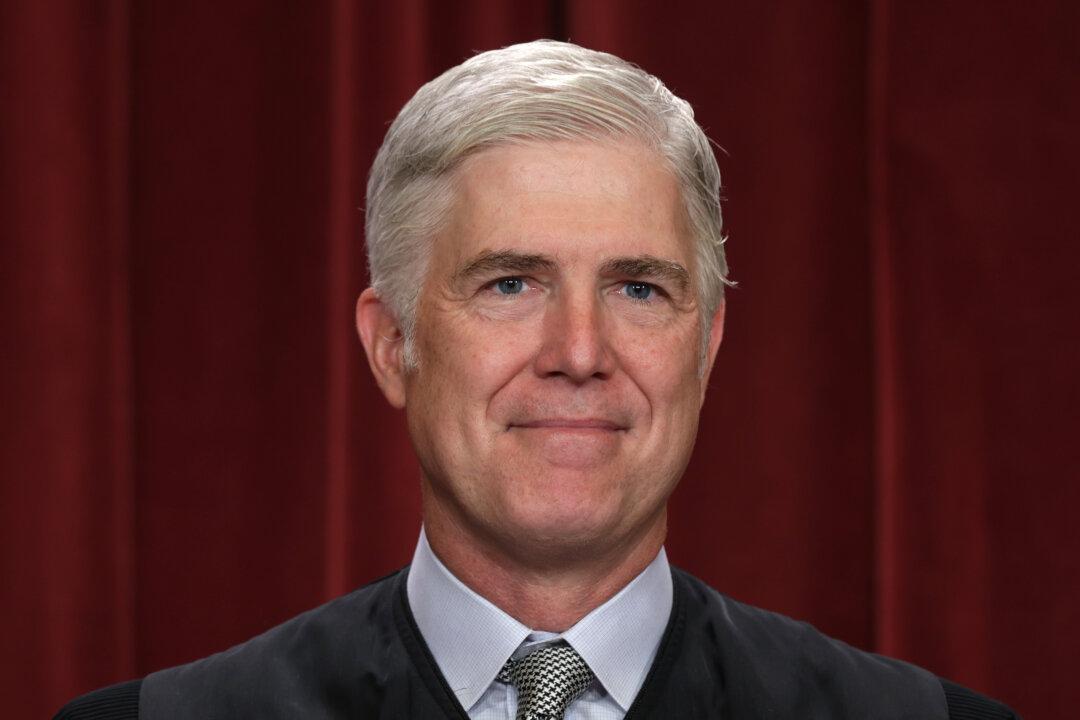The Supreme Court ruled 6–3 in favor of a Christian website designer who said Colorado’s law requiring her to create websites to celebrate same-sex weddings infringed on her constitutional rights.
Justice Neil Gorsuch wrote the majority opinion (pdf) in 303 Creative LLC v. Elenis (court file 21-476) which was decided June 30. The opinion was joined by Chief Justice John Roberts, along with Justices Clarence Thomas, Samuel Alito, Brett Kavanaugh, and Amy Coney Barrett.





